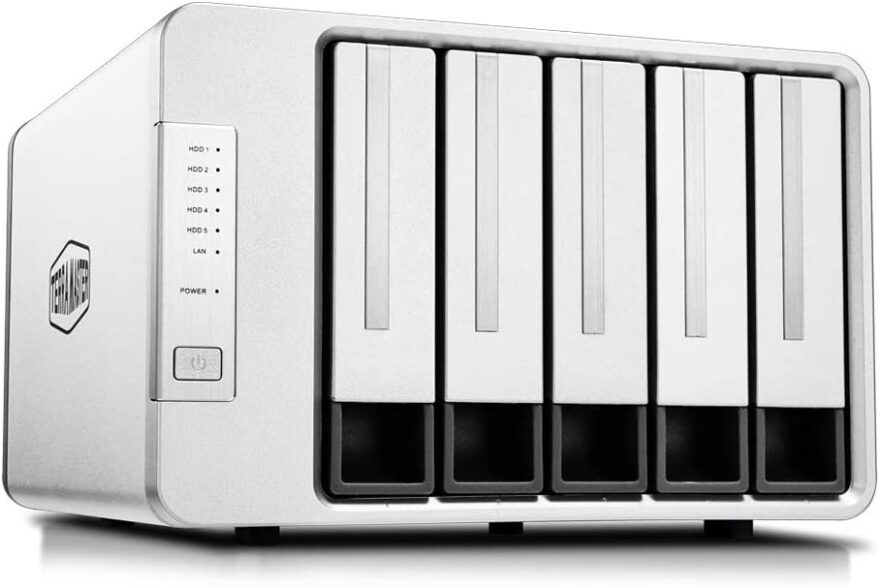3 Things to Know Before You Buy a New NAS
Peter Donnell / 2 years ago

When it comes to buying a new NAS, either for the first time or as an upgrade, it can be tricky to know what is what. There are so many out there, and they’re certainly not all suitable for all tasks either. Heck, you may not even need a NAS, but some other kind of backup solution! Thankfully, Jason Bonoan, Global Product Marketing Manager for NAS, Surveillance, and Enterprise Solutions at Seagate Technology sent me some information about three things you need to know before you buy a NAS. While they may not fully help guide you to your own solution, a little advice from an expert rarely hurts!
I recently upgraded my own NAS system too, which you can check out below.
3 Things to Know
Data is a critical asset for companies, big or small. Without sufficient access to their own data, businesses can face a host of issues; from their ability to provide their customers with the expected level of service or even how well internal teams can collaborate. All of that can impact revenue, customer relationships, and overall efficiency.
That’s why nailing your data storage infrastructure is essential, and that’s where Network Attached Storage can help (NAS). NAS devices are rapidly becoming popular with enterprises and small businesses across industries as an effective, scalable, low-cost storage solution. Below, we have three tips that will help you pick, buy and build the NAS systems for any business.
Understand When You Might Need a NAS
The first and most important thing is to know and understand what the needs of your business are and to match them to the right drive. Many small businesses might begin with storing data on loose hard drives and individual workstations. But this approach is not sustainable in the long run, and as time goes on and a business grows, this can go from being functional to being a liability.
A NAS device is a set-up that’s connected to a network, which in turn enables the storage and retrieval of data from a central location for authorised users. This means data is accessible from simultaneous remote locations, enabling better efficiency and collaboration among teams. Further, NAS devices are built to be flexible and scale out, meaning that it is easy to add additional storage as and when it is needed.
NAS can be compared to having a private cloud in the office, but in a physical form. It’s faster, less expensive and provides all the benefits of a public cloud on site, giving businesses complete control. When a business reaches the stage where continuous access to data is necessary, it’s time to consider a NAS.
Pick the Right Drives
While data needs are complex, it is essential to use the right drive for the right application. To get the most efficiency and maximum benefit, businesses should look to install NAS-optimised hard drives in their devices. While it is tempting to opt for cheaper desktop drives, doing so can hinder the performance of the NAS storage device, and ultimately, a business’s access to data. The reason for this is that desktop drives are not designed with specific NAS applications or requirements in mind. There are two specific considerations that buyers need to be aware of. Firstly, many desktop drives are not made to perform in tight, closely nested environments that a NAS demands. They are not usually built with the heat-resistant and anti-vibration features that NAS drives are specifically designed with.
Secondly, regular desktop drives, though cheaper, are not designed to run for weeks at a time. Instead, they can only read and write data for mere hours before their performance starts to suffer, and for as long as the computer system is switched on. In order to deliver the 24/7 operation that a NAS system is expected to achieve, it needs to have higher reliability and stability at its core.
Think Outside the Box
In today’s data storage market, there are lots of solutions and vendors to pick from. That’s why it’s important to spend time and shop around and see what additional benefits a provider might offer alongside their NAS product. Doing so will mean businesses can get extra value from their investments with a host of add-on services such as warranty, data recovery services and drive health management. Of these, one of the best benefits to look for would be the data recovery services. Should the worst happen and a drive failure occur, turning to hard disk data providers could prove to be an expensive solution – and even then, a full rescue and recovery might not be guaranteed. However, if the vendor offers the service already, that is added peace of mind for you and your business.
Overview
In summary, a NAS device can offer the benefits of a cloud in a physical form. It’s a scalable, affordable and reliable system that almost any business can leverage. The most important things to bear in mind are to know one’s needs, use optimised drives and to look for the most beneficial add-on services to get the most value from the NAS system.



















